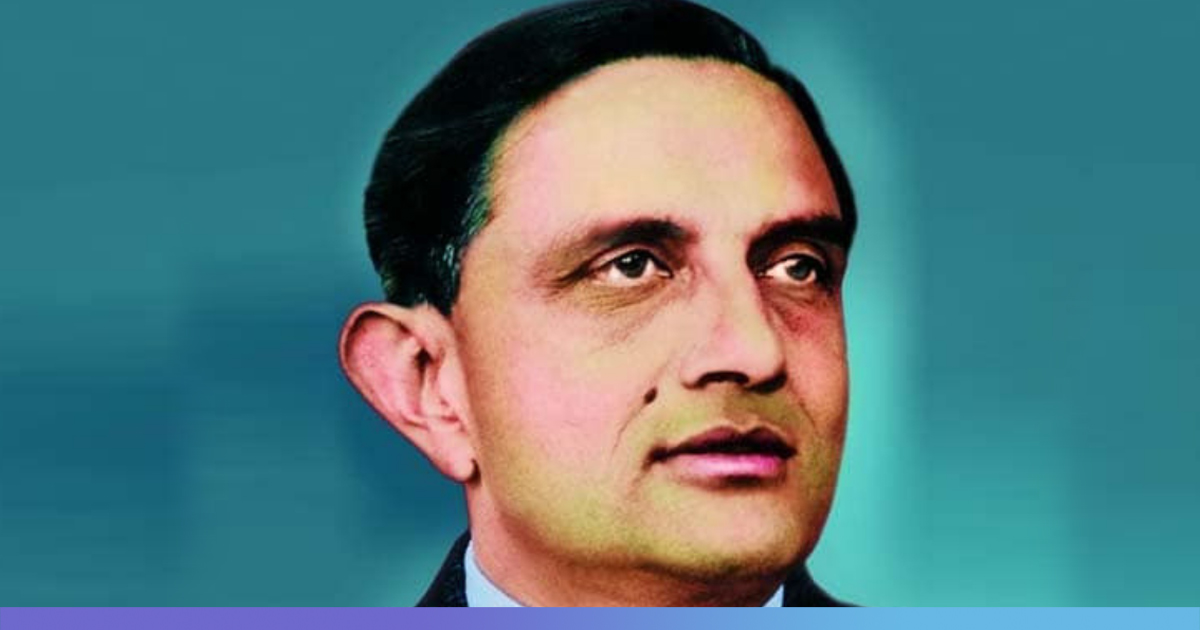August 12, 2019, marks 100th birth anniversary of Indian physicist Vikram Sarabhai who is known as the father of the Indian Space Research Organisation. Sarabhai’s vision continues to be a guiding force for the Isro scientists who are engaged in ground-breaking research. Let us know more about the life and times of Vikram Sarabhai.
Childhood Days
Sarabhai was born on August 12, 1919, in Ahmedabad. Sarabhai belonged to a wealthy family who owned several textile mills. Since childhood, he showed a keen interest in science. He passed his intermediate exam in Science from Gujarat College. In 1940 he took admission at the St John’s College, the University of Cambridge in England and pursued Tripos in Natural Sciences. Five years later in 1945, he returned to Cambridge for further research and on cosmic rays and earned PhD degree.
He returned to India at the age of 28 after Independence and established The Physical Research Laboratory (PRL) in Ahemdabad in November 1947. In 1961, he with the businessman Kasturbhai Lalbhai set up the renowned Indian Institute of Management (IIM), Ahmedabad.
Sarabhai’s brainchild – ISRO
Sarabhai’s significant contribution to the field of science is the establishment of Isro, one of the highly ranked government space agencies in the world. Sarabhai established The Indian National Committee for Space Research in 1962 which was later rechristened to ISRO. His efforts were crucial in making the Jawaharlal Nehru Government understand the importance space programme after Russia’s Sputnik launch- the world’s first artificial satellite. Sarabhai had said, “There are some who question the relevance of space activities in a developing nation. To us, there is no ambiguity of purpose… We must be second to none in the application of advanced technologies to the real problems of man and society.”
India’s father of nuclear Science program – Dr Homi Bhabna helped Sarabhai in setting up the first rocket launching station – Thumba Equatorial Rocket Launching Station in southern India. The first succesful launch from the station took place on November 21, 1963, with a sodium vapour payload. Sarabhai’s dream came true when India launched its first satellite – Aryabhata from a Russian Cosmodrome in 1975.
Dr Sarabhai’s contribution to India’s space sciences is unfathomable. The Isro honoured him by naming a crater after him on the moon in 1973.
From launching its first satellite Aryabhata in 1975 to landing a foot on the moon, Sarabhai’s brainchild. Apart from Isro, he has established a total of ten institutions in the country to foster India’s scientific province. Sarabhai was conferred with Padma Bhushan in 1966 and Padma Vibhushan posthumously in 1972.
President Ram Nath Kovind took to Twitter to wish the Vikram Sarabhai. Tech giant – Google is also celebrating Vikram Sarabhai’s birthday through a Google Doodle which has been illustrated by Pavan Rajurkar.
Isro to pay tribute to Sarabhai has announced an award in his name – Vikram Sarabhai Journalism Award on August 12, 2019. The award will be conferred to those journalists who have contributed to the fields of space science and research.
Also Read: All You Need To Know About Successful Launch Of Chandrayaan-2, India’s Second Moon Mission










